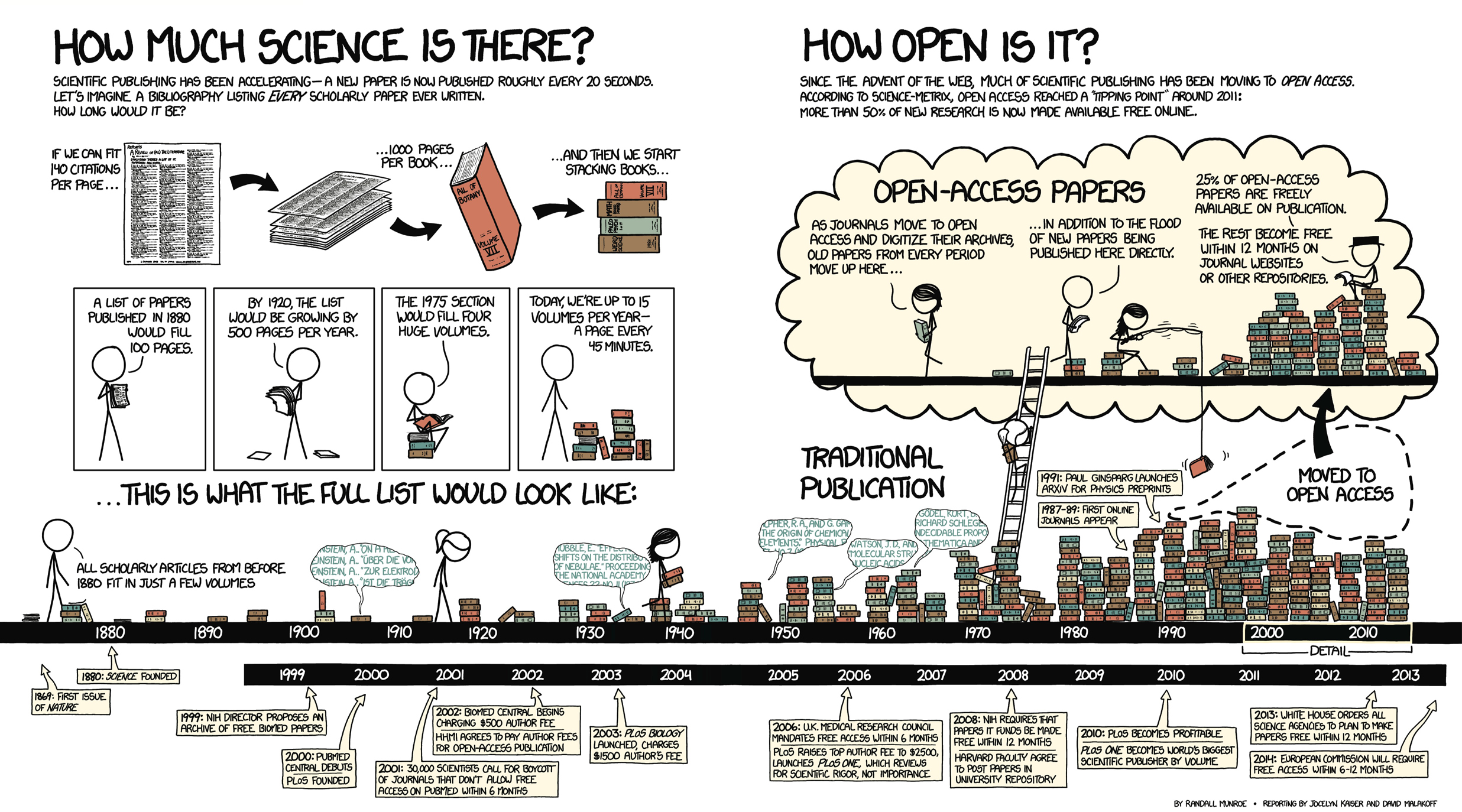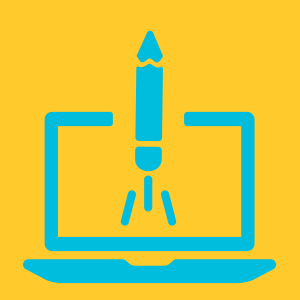Join the Open Earth Data Science community online
Use GitHub Pages to get your work out on the internet for free
Want to get involved in open science? One first step is publishing your work on the internet.
- Explain how web publishing is important for open science
- Describe the web publishing tool GitHub Pages
- Name some advantages of GitHub Pages for web publishing
Science communication, Internet publishing
The internet has revolutionized science publishing. For example, most published scientific papers are now made freely available online within one year (Randall Munroe 2013):
It’s not just peer-reviewed publications that have changed – scientists all over the world now use websites, blogs, and social media to discuss, communicate, and publicize their work. The internet is also a great way to transparently involve your community in your research.
Not all science has to be open! It’s important to think about the impacts of publishing your work on people and communities wherever you are studying, and also honor principles data sovereignty. We will talk about some ways to publish your work while omitting or obscuring sensitive details, but for now make sure that you and your mentors are comfortable before putting your work on the internet.
There are lots of tools available for creating free websites. We, as Earth and Environmental Data Scientists, like to use a platform called GitHub Pages for a couple of reasons:
- It’s completely free to use, event for larger websites (like this one!).
- It is a feature of the code collaboration website GitHub, which is already where most programmers and scientists keep their code. Keeping our websites on GitHub also means that we can collaborate on and discuss them online, the same way we would any other code.
- It can automatically build an attractive website using text-based, human-readable tools.
- It can automatically incorporate the plots and maps generated by code.
- Though GitHub itself is not open source software (it’s owned by Microsoft), Pages is built on open-source tools. This means that if for some reason the availability or pricing structure ever changes we could download the code and put the website up somewhere else.
In the following lessons, you will learn how to create a personal portfolio webpage and publish it for free using GitHub Pages.



